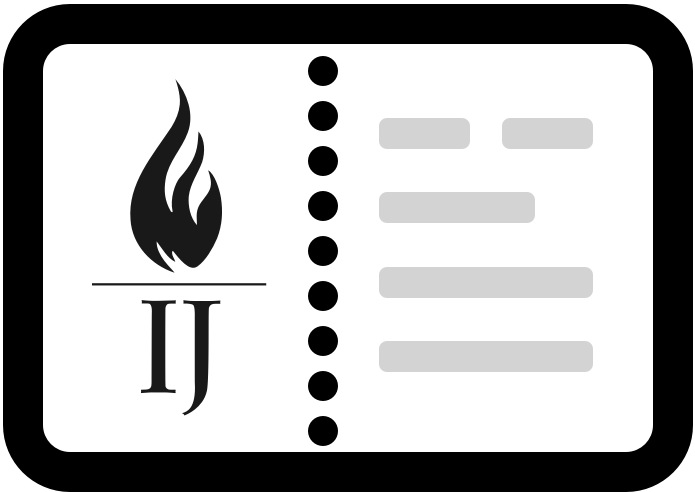The Power of Licensing Boards
Industry insiders do not stop at securing and then preserving their licensing regimes. They also push the boundaries of those regimes outward, something they can do because of their “capture” of the state licensing boards charged with overseeing them.
The same legislation that creates a license also frequently creates a licensing board to administer that license. Often, the law requires that boards be composed almost entirely of occupational practitioners.1 The result is that licensing boards are frequently run by people with a vested interest in the occupation and sometimes even by the same people who lobbied for a license’s creation.
These boards enjoy tremendous power, which they routinely wield to exclude potential competitors from the field. A common tactic is to broaden the definition or scope of practice of a licensed occupation, a practice we term “license creep.” Licensing legislation ordinarily describes the activities that define the practice of the occupation. Through license creep, boards expand these definitions to encompass occupations that operate at the fringe of a regulated occupation. Or, when expanding an occupational definition requires legislative assent, boards join forces with their professional association colleagues to lobby legislators to approve the desired license creep.
For example, cosmetology licensing boards in numerous states have interpreted their scope of practice to include eyebrow threading and African-style hair braiding.2 These activities may share with cosmetology the same general goal of improving personal appearance, but they involve techniques, tools and practices that differ significantly from the traditions and legislated definitions of cosmetology.
Cosmetology boards are not alone in pushing the boundaries of their scope of practice. Veterinary boards have sought to restrict the practice of animal massage and horse teeth floating to licensed veterinarians. Animal massage therapists provide relief to animals that suffer from excessively tight muscles. Horse teeth floaters file or “float” a horse’s teeth, a necessary procedure since horses’ teeth grow throughout their lifetimes. State veterinary boards have tried blocking these less expensive (and often far better qualified) competitors even though few veterinary schools provide significant instruction in either practice.3
Human health and dental care providers are not above deploying license creep to stymie their competition. A 2013 IJ study found that since 2005 at least 30 state dental boards—or legislatures at the behest of industry insiders—had attempted to shut down teeth-whitening businesses, claiming that teeth whitening should fall under the exclusive domain of licensed dentists.4 Teeth whitening is a significant moneymaker for many dentists, and boards are manifestly using their power to shut out competition. To cover their tracks, they claim a public health and safety concern, even though teeth-whitening entrepreneurs merely offer the same products people can already buy over the counter and do not touch the mouths of their customers.
The actions of one of those dental boards—the North Carolina State Board of Dental Examiners—led to a Federal Trade Commission (FTC) case before the U.S. Supreme Court, North Carolina State Board of Dental Examiners v. FTC. The Board, composed almost entirely of practicing dentists, had launched a series of enforcement actions against non-dentist teeth whiteners in response to complaints (from dentists) focused mainly on “the low prices charged by nondentists.”5 The FTC argued the Board’s actions against non-dentists amounted to the suppression of competition and violated federal antitrust law. In response, the Board claimed it was entitled to immunity from antitrust enforcement as an arm of the state government. But in 2015, the U.S. Supreme Court held otherwise.6 The Court recognized the threat to competition posed by licensing boards made up of members of the licensed occupation, which research has shown to be a particular problem.7 The Court ruled that boards composed of market participants setting the rules of the game may be subject to antitrust liability unless states exercise “active supervision” over them.8
Across the border, the South Carolina Legislature in 2016 adopted a bill designed to shut down a new web-based invention that enables consumers to obtain a prescription for corrective lenses without an optometrist’s aid. The technology has the potential to expand eye care to low-income and rural consumers, but the American Optometric Association saw it as an economic threat. It lobbied the Legislature for the creation of the so-called Eye Care Consumer Protection Law,9 which outlawed telemedicine for corrective lenses.10 On May 16, 2016, Gov. Nikki Haley vetoed the bill as plainly anticompetitive.11 Unfortunately, the Legislature voted to override her veto,12 neatly illustrating how industry associations can use their influence to stop their competition in its tracks.
Still another quintessential example of license creep comes from the death industry. Over the course of the late 19th and early 20th centuries, the National Funeral Directors Association lobbied legislators to pass laws licensing funeral directors and embalmers in all 50 states and the District of Columbia, thereby restricting their competition.13 But the real money to be made was in selling funeral merchandise, particularly caskets. So licensed funeral directors successfully pressured legislatures in a dozen states to adopt laws allowing only licensed funeral directors such as themselves to sell caskets—essentially large, empty boxes—and other funeral merchandise to the public.14
In a particularly pernicious form of license creep, licensing boards have even attempted to use their power to censor speech. The Kentucky Board of Psychology, for example, sought to censor a North Carolina psychologist—John Rosemond—who writes a weekly syndicated column that appears in hundreds of newspapers, including one in Kentucky. After receiving a complaint that John was, through his column, practicing psychology in Kentucky without a Kentucky license,15 the Board sent a cease-and-desist letter.16 Then, when John sued the Board for violating his First Amendment rights, the Board showed its commitment to protectionism by taking the suit to court—and losing.17
Similarly, the North Carolina Board of Dietetics/Nutrition attempted to censor blogger Steve Cooksey, who writes about managing his Type 2 diabetes through diet and exercise and answers questions from his readers. Believing such speech constituted the practice of dietetics and nutrition, the Board ordered Steve to remove content from his blog and cease answering reader questions.18 Like the Kentucky psychology board, the Board clung to its position all the way through a costly legal action, retreating only when defeat was certain.19
License creep is only one way in which licensing boards use their power to restrict competition. In addition to the power to define their own scope of practice, boards often also have the power to set the standards for admission into an occupation. Enabling legislation often prescribes licensing requirements, but legislatures sometimes delegate this task to boards. For example, statutes in Minnesota and West Virginia give cosmetology boards the authority to establish some or all licensing requirements.20 The same is true for auctioneers in New Hampshire and pharmacy technicians in Louisiana.21 And because boards are frequently populated by members of the occupation they oversee,22 they have a strong incentive to restrict new competitors from entering the market by making licensing requirements as stringent as practicable.
Not only can boards often set standards prohibitively high in the first place, they can frequently manipulate licensing requirements at will and with little oversight. For instance, if a board feels too many competitors are entering the market, it can increase the minimum score needed to pass a licensing exam to lower the pass rate, thereby reducing the flow of new entrants to a trickle.23


